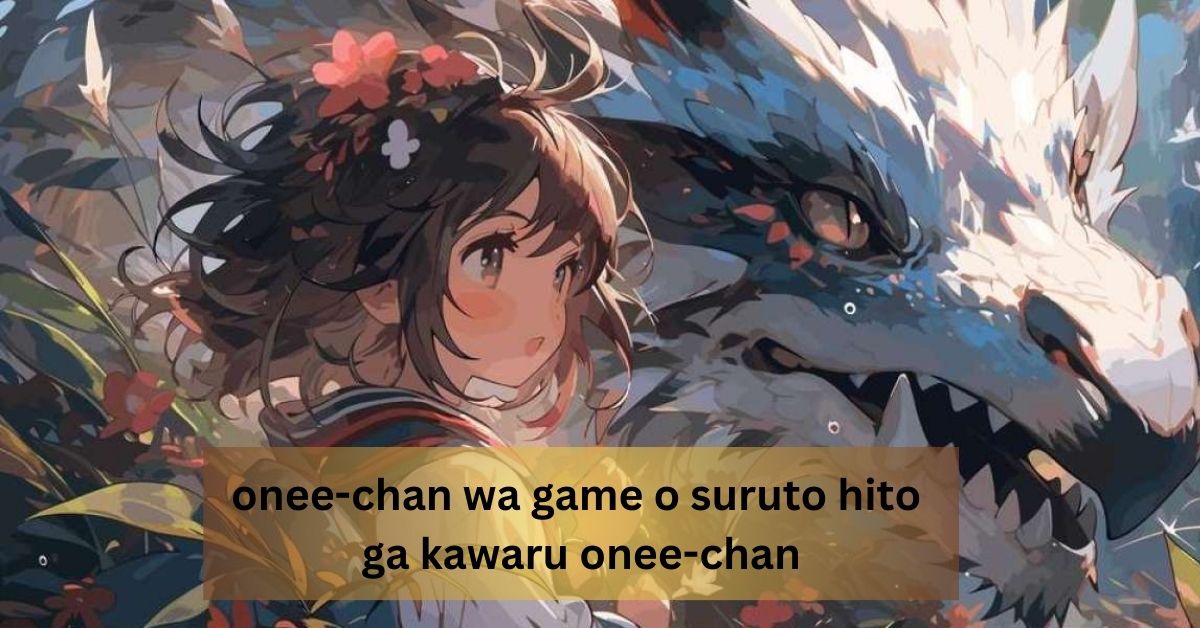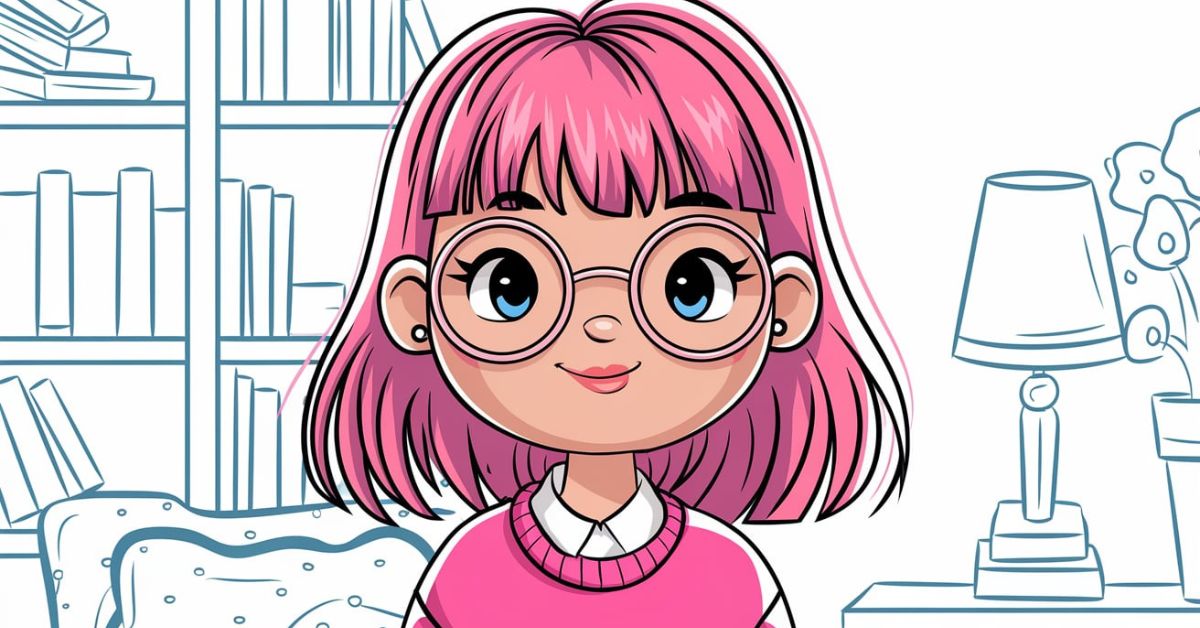In recent years, a curious phenomenon has emerged in the realm of gaming and social media, centered around the phrase “onee-chan wa game o suruto hito ga kawaru onee-chan” (お姉ちゃんはゲームをする), which translates to “Big Sister Plays Games.”
This phrase has sparked discussions, debates, and a significant following within gaming communities, particularly in Japan. Let’s delve into this intriguing topic through the following headings:
Origins and Cultural Context:
The origins of “onee-chan wa game o suruto hito ga kawaru onee-chan” can be traced back to a manga series of the same name created by Pon Takahanada.
The manga, which began serialization in 2017, revolves around a girl named Akira Oono who becomes addicted to playing video games after her little sister purchases a console for her.
The series gained popularity for its humorous take on gaming culture and the interactions between siblings.
In Japanese culture, the concept of an “onee-chan wa game o suruto hito ga kawaru onee-chan” (big sister) holds significant cultural and familial connotations.
It typically denotes an older sister figure who is caring, protective, and influential in the lives of her younger siblings.
The incorporation of gaming into this dynamic adds a modern twist to traditional familial roles, reflecting the increasing prevalence of gaming as a form of entertainment and social interaction.
Rise of Social Media and Memetic Culture:
The phrase “onee-chan wa game o suruto hito ga kawaru onee-chan” transcended its origins in manga and gained momentum through social media platforms such as Twitter, where users began sharing fan art, memes, and discussions related to the concept.
Memes featuring the phrase often depict scenarios where a big sister’s involvement in gaming leads to humorous or unexpected outcomes, further fueling its popularity and virality.
The memetic nature of “onee-chan wa game o suruto hito ga kawaru onee-chan” highlights the power of internet culture in shaping and disseminating ideas, particularly within niche communities like gaming.
Its concise yet evocative nature makes it well-suited for sharing and remixing across various online platforms, contributing to its widespread recognition and appeal.
Representation and Empowerment:
Beyond its entertainment value, “onee-chan wa game o suruto hito ga kawaru onee-chan” has also been embraced as a symbol of representation and empowerment within gaming communities, particularly among female gamers.
Historically, gaming has been perceived as a male-dominated domain, with female gamers facing stereotypes and challenges in asserting their presence and expertise.
The portrayal of a female protagonist like Akira Oono who not only enjoys gaming but excels at it challenges traditional gender norms and stereotypes surrounding gaming.
By celebrating the agency and autonomy of a big sister character in pursuing her passion for gaming, “Onee-chan wa Game o Suru” sends a powerful message about inclusivity and diversity within gaming culture.
Impact on Media and Merchandising:
The success of the manga series and its associated meme culture has led to various adaptations and merchandising opportunities. “onee-chan wa game o suruto hito ga kawaru onee-chan” has spawned drama CDs, voice dramas, and even a mobile game, expanding its reach beyond the realm of manga and anime.
Additionally, the phrase has been incorporated into merchandise such as apparel, accessories, and collectibles, further cementing its status as a cultural phenomenon.
The commercialization of “Onee-chan wa Game o Suru” underscores its enduring popularity and marketability, as well as its ability to resonate with audiences across different mediums.
Future Outlook and Evolution:
As with any internet-driven phenomenon, the future trajectory of “Onee-chan wa Game o Suru” remains uncertain.
Its continued relevance and impact will likely depend on factors such as evolving trends in gaming culture, shifts in social media dynamics, and the emergence of new forms of entertainment and expression.
Cultural Critique and Societal Reflection:
Delve into how the concept of “Onee-chan wa Game o Suru” reflects broader societal attitudes towards gaming, sibling relationships, and gender roles.
Explore the underlying themes and messages conveyed through the portrayal of big sister characters in gaming contexts.
Community Engagement and Fan Contributions:
Examine the active participation of fans in contributing to the “onee-chan wa game o suruto hito ga kawaru onee-chan” phenomenon through fan art, fanfiction, and community events.
Highlight the role of online communities in fostering creativity, collaboration, and camaraderie among individuals who share an affinity for the concept.
Educational Implications and Media Literacy:
Discuss the potential educational value of incorporating “onee-chan wa game o suruto hito ga kawaru onee-chan” into discussions surrounding media literacy and cultural studies.
Explore how educators and scholars can leverage the phenomenon as a case study for analyzing the intersection of gaming, storytelling, and online discourse.
Global Reception and Cross-Cultural Interpretations:
Explore how “Onee-chan wa Game o Suru” has been received and interpreted by audiences outside of Japan, considering cultural differences, localization efforts, and the universality of themes related to gaming and sibling relationships.
Psychological Insights and Identity Formation:
Investigate the psychological implications of identifying with big sister characters in gaming narratives and the role of parasocial relationships in shaping individuals’ sense of identity and belonging within gaming communities. Consider how virtual interactions with fictional characters can influence real-world perceptions and behaviors.
Gender Dynamics and Representation in Gaming:
Analyze the portrayal of gender dynamics within gaming narratives and the impact of “Onee-chan wa Game o Suru” on challenging traditional gender roles and stereotypes. Explore how the concept contributes to discussions surrounding representation and inclusivity in the gaming industry.
Narrative Themes and Storytelling Techniques:
Examine the narrative themes and storytelling techniques employed in “Onee-chan wa Game o Suru” and similar media to engage audiences and convey messages about the power of gaming as a form of self-expression, escapism, and social connection.
Ethical Considerations and Cultural Appropriation:
Discuss the ethical implications of incorporating elements of Japanese culture, including the concept of “Onee-chan,” into global gaming discourse and media consumption. Consider how issues of cultural appropriation and authenticity are navigated in the context of adapting and interpreting cultural phenomena for diverse audiences.
Conclusion:
However, the enduring appeal of the phrase lies in its ability to capture the imagination and spark creativity among individuals who share a love for gaming and internet culture. Whether it fades into obscurity or evolves into something entirely new, “onee-chan wa game o suruto hito ga kawaru onee-chan” has left an indelible mark on the landscape of gaming discourse and popular culture.


